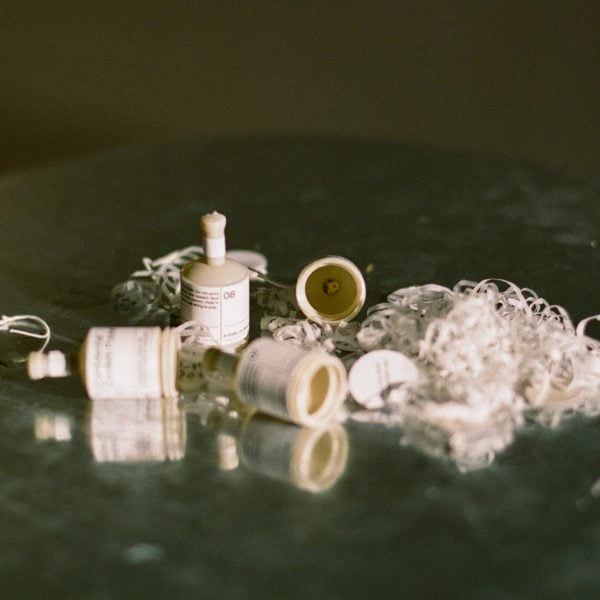Celebratory party poppers made from a medical report and a rocket backpack were among the items on show at the Heal: Repair+ exhibition at Singapore Design Week..
The exhibition, which was curated by designer Hans Tan together with health lead Wong Sweet Fun – a senior consultant geriatrician – focused on mental wellness and how repairing a broken object could create an emotional change.
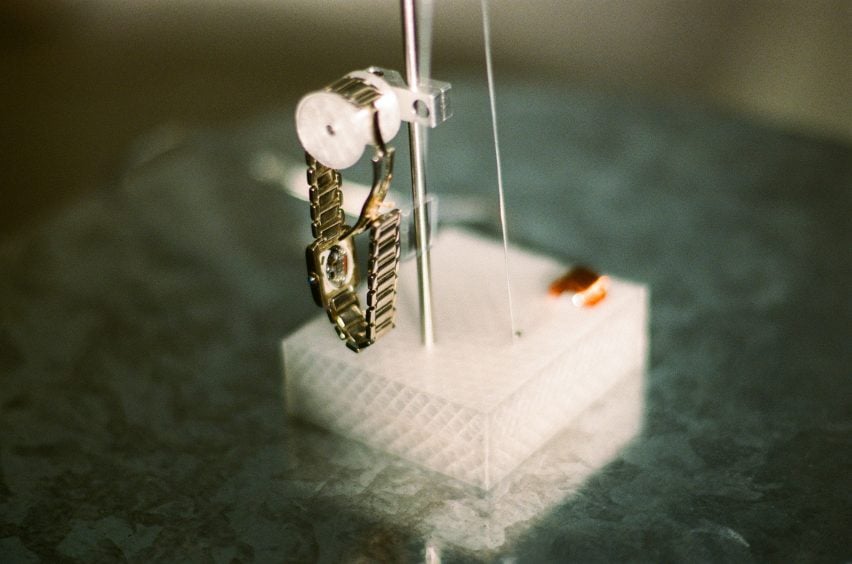
The duo reached out to find people who were willing to submit a meaningful item and have it transformed by a designer.
“Considering the sensitive nature of the focus in this third edition of R for Repair on mental wellness, we did more of a closed call for object volunteers, through the collaborators and related organisations of Yishun Health, part of the Singapore’s National Health Group,” Tan told Dezeen.
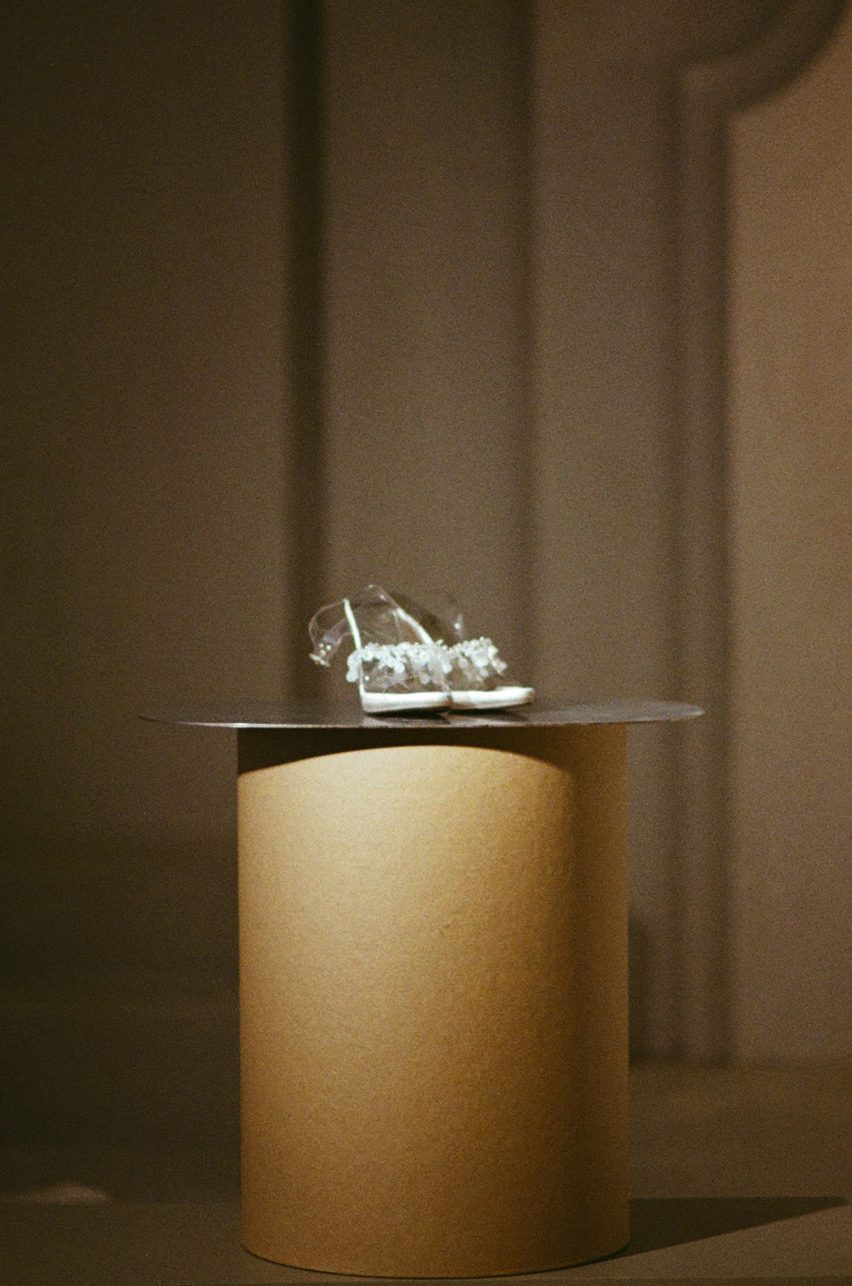
Tan then looked at the objects submitted to see if they would be suitable for the exhibition, whittling the initial 15 submissions down to eight final objects using a two-fold set of criteria.
“First, the story of the object and how it related to the owner’s difficult period of life,” he explained.
“This could be present or past challenge. Second, it was the extent of the object’s physical disrepair, considering the material and type of object that determines the potential and challenge of physical transformation.”
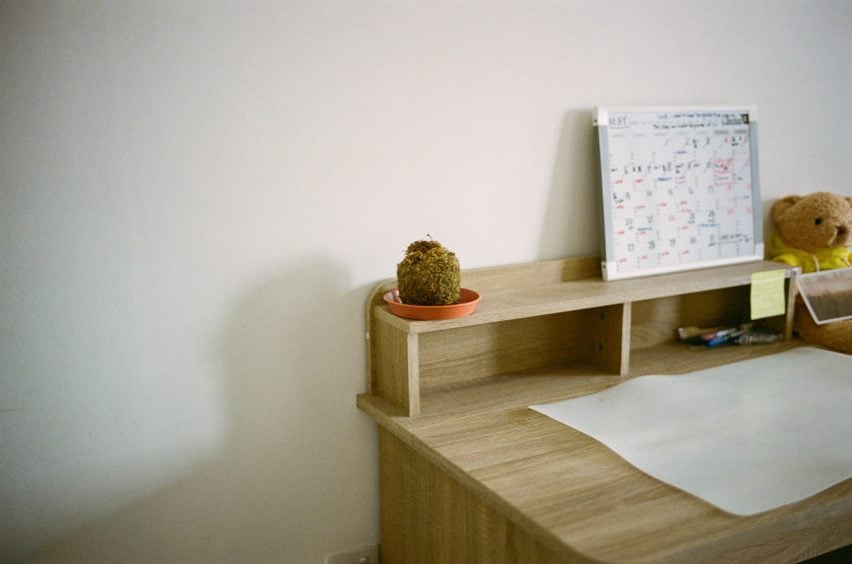
Once the pieces had been chosen, Tan paired the volunteers up with the designers who would transform the objects.
“I aimed to work with emerging designers and artists based in Singapore,” he said.
“It was important to have a variety of creative ethos so that outcomes would present a variegated interrogation of repair, at the same time each designer and artist must be comfortable with making.”
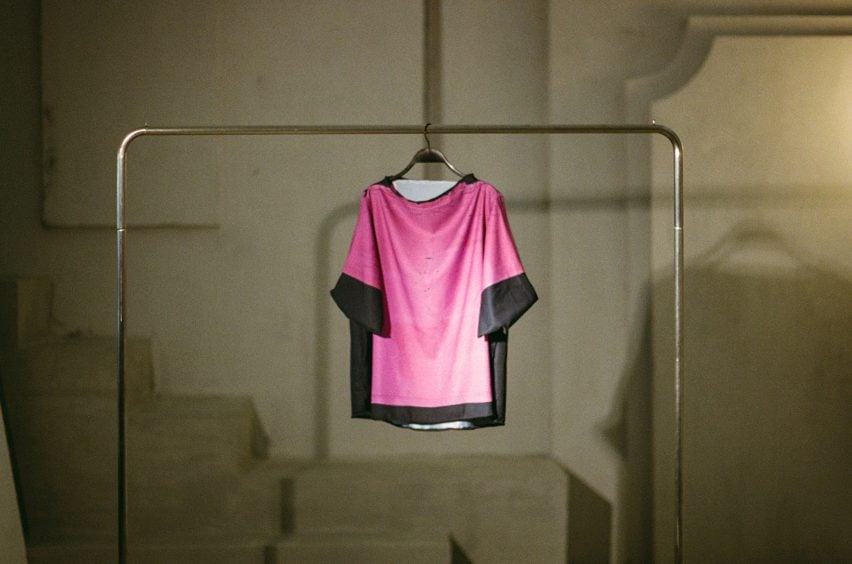
The eight objects chosen for the final exhibition, which was shown under Singapore Design Week’s People of Design theme, ranged from furniture to clothing.
A kokedama, an ornamental Japanese moss-covered soil ball owned by Jie Yi, had given up on life and was uploaded onto the blockchain by technology studio Serial Co, which created a digital version that could live on and thrive.
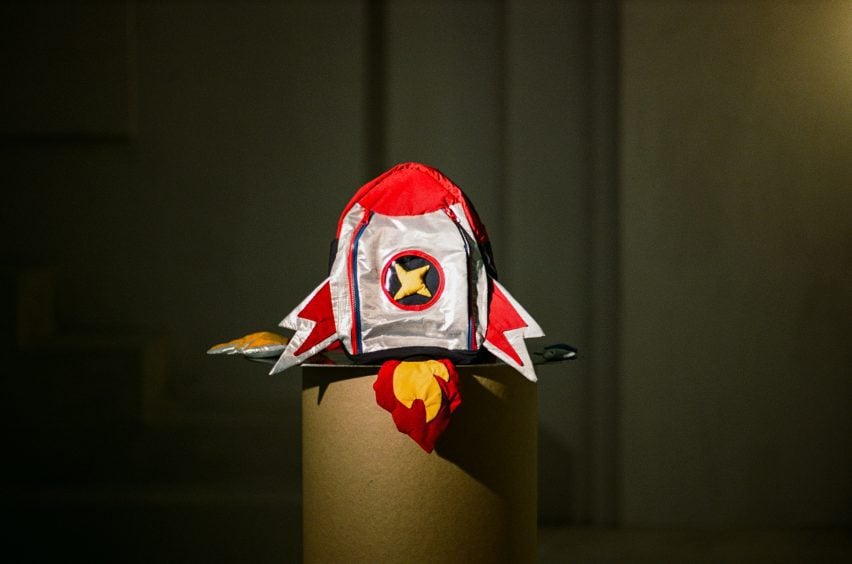
Other interventions were more physical, like that by designers Zachary Chan and Nay Iyn Huii, who repaired six-year-old Isaiah’s favourite rocket backpack with new materials.
“The process required us to think about what was important to Isaiah and, in many ways, to consider what we would have found awesome as children,” the designers said.
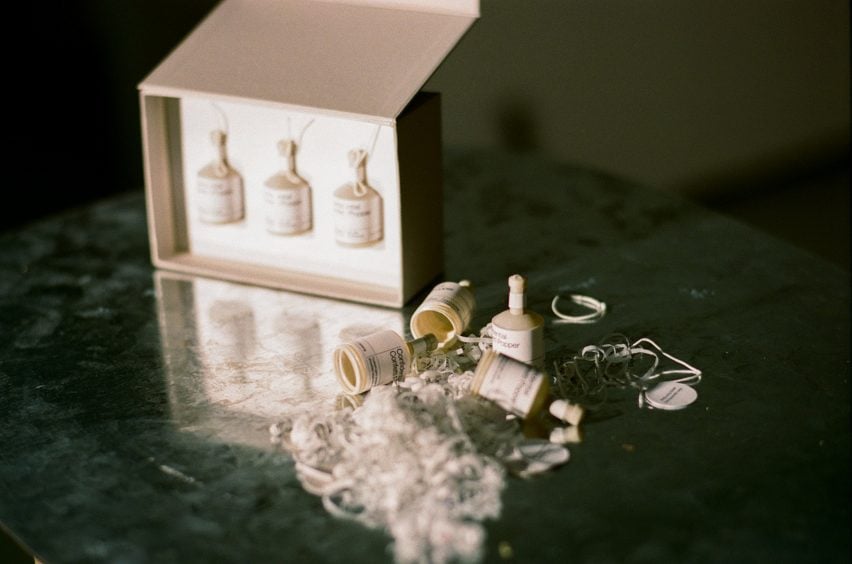
Also taking part in the exhibition was Joanne, who wanted a medical report that detailed her daughter’s health issues at birth to be transformed into something new.
“I want to keep this letter to let my daughter’s children see it in the future,” she explained.
Tan and Fun teamed Joanne up with graphic designer Lin Zeherng, who made a copy of the medical report. This was then turned into the Confidential Confetti Popper – a set of custom-made poppers that contain streamers made from the copy.
Together, Joanne and Zeherng popped the artwork to celebrate her daughter, who is now 35, and her path from diagnosis to survival.
“I had been puzzling over how to preserve the letter, which has been yellowing, and was considering framing it up,” Joanne said.
“When Zeherng explained the rationale behind the popper, I was surprised,” she added. “I never imagined that my story could be turned into this kind of inspiration.”
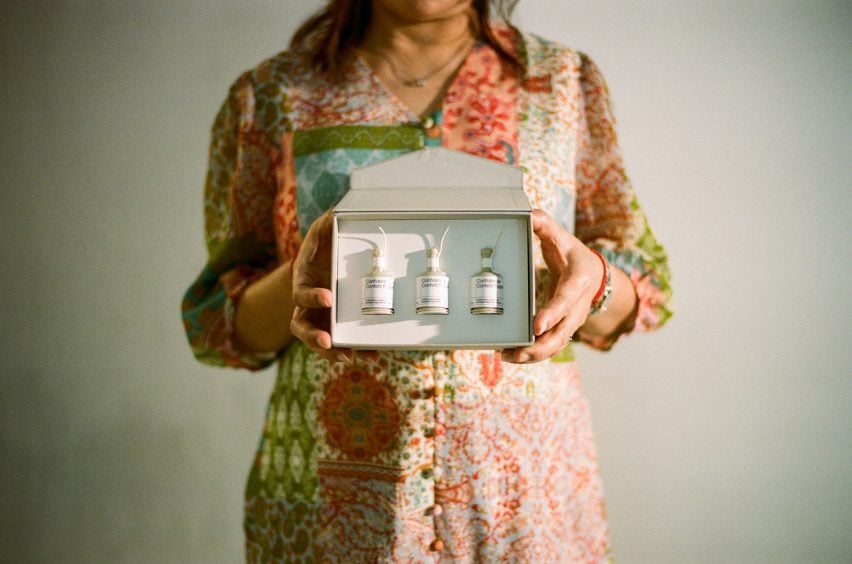
Another item on show was a small blue plastic chair, originally used by Dory, which was repaired to be enjoyed by her daughter.
Together with Joshua Ram of 25 Degree Woodworks, designer Edmund Zhang also created a replica of the original chair in wood in a size designed for adults, to let Dory use it together with her daughter.
“It’s a new piece, and yet so familiar,” Dory said. “The concept is so simple yet elegant.”
The other pieces on show at the exhibition were an iron, a watch, a T-shirt, and a pair of wedding shoes.
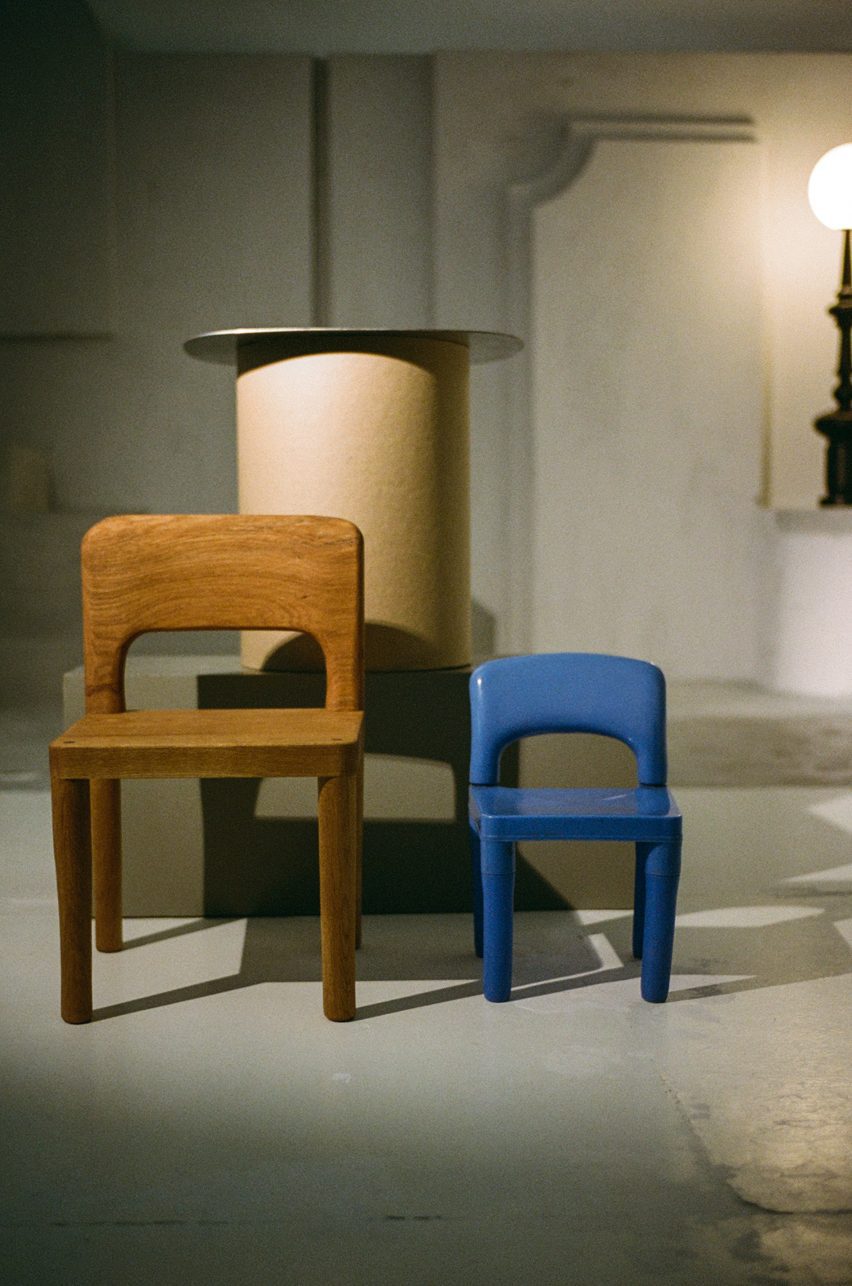
Tan hoped that transforming broken objects that held meaning for people could be an empowering experience.
“My dream is for people to see themselves as designers, recognising that the things they care about – physical health, mental well-being, career paths, relationships, climate, and politics – are all elements they have the power to design,” Tan said.
“This realisation is deeply empowering, as it encourages people to take an active role in shaping their lives and the world around them,” he continued.
“While your story may be written by past experiences, the narrative you choose to tell yourself can be redesigned and written through the lens of future possibilities.”
The show was the latest in the R for Repair series, which has previously been held in Singapore and at the V&A in London.
The photography is by Jonathan Levi Tan.
Singapore Design Week is organised by Design Singapore Council and took place from 26 September to 6 October 2024. Dezeen is a media partner of Singapore Design Week. See Dezeen Events Guide for an up-to-date list of architecture and design events taking place around the world.

